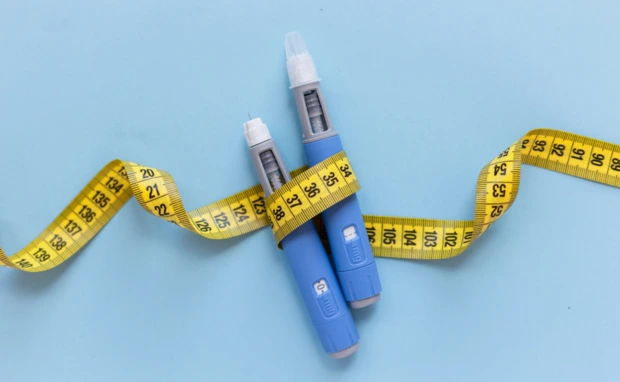Key points
- Wegovy (semaglutide) is an FDA-approved medication that mimics a natural gut hormone, GLP-1, to help with chronic weight management
- It primarily works by reducing appetite, increasing feelings of fullness, and slowing down stomach emptying, which helps you consume fewer calories
- Wegovy's effectiveness is significantly enhanced when combined with comprehensive lifestyle changes, including a balanced diet and regular physical activity
- Understanding its mechanisms and proactively managing potential side effects with nutrition support can help maximize your weight loss and improve overall health
You've likely heard about Wegovy, one of the leading medications in the new generation of weight loss drugs. It has changed how we approach chronic weight management, offering a powerful tool for many.
But beyond the headlines, you might be wondering: how does Wegovy really work? What's the science behind it, and what can you realistically expect as you manage your weight?
Understanding the mechanisms of Wegovy can help you make informed decisions and optimize your results. Let's explore how this medication helps your body manage weight and how you can work with it for sustainable success.
What exactly is Wegovy?
Wegovy is a prescription medication that the US FDA approved for chronic weight management in adults. It's intended for individuals with obesity (a BMI of 30 kg/m² or greater) or those who are overweight (a BMI of 27 kg/m² or greater) and have at least one weight-related condition, like high blood pressure, type 2 diabetes, or high cholesterol.
The active ingredient in Wegovy is semaglutide. You might recognize semaglutide from other medications, but for weight loss, it's formulated for specific dosing and administration. It comes as a once-weekly injection that you administer yourself, often with guidance from your healthcare provider.
The science behind Wegovy: how it works
Mimicking a natural hormone: GLP-1
You naturally produce GLP-1 as part of your body's intricate system for managing digestion and energy balance.
When you eat, GLP-1 sends signals to various parts of your body. It helps release insulin to control blood sugar, slows digestion, and signals your brain that you're full.
Semaglutide acts like your body's natural GLP-1 but stays in your system for a longer period. This extended action is key to its effectiveness in chronic weight management.
How Wegovy works to support weight loss: physical effects
People taking Wegovy often notice three big changes:
- They feel full sooner and stay full longer.
- They think about food less often.
- They naturally eat less without as much effort.
These effects come from how Wegovy interacts with your brain and digestive system.
1. Turning down appetite signals
Wegovy mimics a natural hormone called GLP-1 (glucagon-like peptide-1), which helps regulate hunger. It activates GLP-1 receptors in the brain—especially in an area called the hypothalamus, which controls appetite. When those receptors are activated, your brain gets the message that you’re satisfied, even with smaller portions.
💡 In other words, Wegovy helps your body feel full on fewer calories.
2. Slowing digestion for longer fullness
Wegovy also slows gastric emptying, meaning food stays in your stomach longer before moving into your intestines.
That lingering fullness helps prevent overeating. It’s the same reason some people feel queasy or experience stomach upset—especially if they eat large or high-fat meals—while their body is adjusting to the medication.
3. Quieting the "food noise"
Another common effect is a noticeable drop in food-related thoughts and cravings, often described as a quieting of “food noise.”
While researchers are still studying why this happens, it’s thought to involve GLP-1’s influence on the brain’s reward pathways—the same circuits that make certain foods feel extra tempting. By dialing down those signals, Wegovy can help reduce emotional or impulsive eating, making it easier to choose foods that align with your health goals.
How does Wegovy help you lose weight?
By combining these mechanisms—reducing appetite, increasing fullness, slowing digestion, potentially curbing cravings—Wegovy helps you consistently eat less food. This sustained reduction in calorie intake creates a calorie deficit, which is essential for weight loss.
In clinical trials, patients noticed an average body weight reduction of approximately 15% over about 68 weeks.
In other words, for someone starting at 200 pounds, this could mean losing 30 pounds.
"The reduction in appetite and food noise that many people experience on Wegovy creates a unique opportunity to develop healthier eating habits," says register dietician, Rita Faycurry. "When the constant hunger isn't there, it becomes much easier to make thoughtful food choices and focus on nutrition quality rather than just managing cravings."
What to expect on Wegovy
When starting Wegovy, it's helpful to know what typical experiences are and how to manage them.
Potential weight loss results
Clinical trials for Wegovy show significant weight loss. Individual results can vary depending on factors like your starting weight, adherence to the medication, and your commitment to lifestyle changes.
It's important to remember that weight loss typically occurs gradually. Your doctor may start you on a low dose and slowly increase it over time. This "titration" period helps your body adjust to the medication and minimizes side effects. You might not see dramatic weight loss during the initial low-dose phase.
Common side effects and how to manage them
Common side effects include nausea, diarrhea, vomiting, and constipation. These are often related to the medication's effect of slowing gastric emptying.
Here are some practical tips to manage these side effects:
- Eat smaller, more frequent meals: Instead of three large meals, try 5-6 smaller meals throughout the day to reduce the burden on your digestive system
- Choose bland, low-fat foods: Stick to easy-to-digest options like toast, rice, crackers, and lean proteins (chicken breast, fish). High-fat, greasy, or spicy foods can worsen nausea and discomfort
- Stay hydrated: Drink plenty of water throughout the day, especially if you experience vomiting or diarrhea. Electrolyte-rich drinks may also be beneficial
- Identify trigger foods: Pay attention to which foods seem to worsen your symptoms and try to limit or avoid them
- Eat slowly: Give your body time to process the food and recognize fullness cues
A registered dietitian can provide personalized guidance on food choices and eating patterns to help minimize side effects and optimize your nutrition while on Wegovy.
"I recommend my clients keep a food and symptom diary during the first few weeks on Wegovy," notes Rita Faycurry, RD. "This helps identify personal trigger foods and eating patterns that work best for their body while adjusting to the medication."
Wegovy and lifestyle: a powerful partnership
Wegovy's benefits are amplified when combined with healthy eating habits and regular physical activity.
The importance of diet
Even with reduced hunger, it still matters what you eat. Focusing on nutrient-dense foods will provide your body with the vitamins and minerals it needs, support overall health, and help manage side effects.
- Prioritize lean protein: This helps preserve muscle mass during weight loss and keeps you feeling full. Examples include chicken, fish, beans, lentils, and Greek yogurt
- Load up on fiber: Fruits, vegetables, and whole grains add fiber, which aids digestion, promotes satiety, and supports gut health
- Choose healthy fats: Include sources like avocados, nuts, seeds, and olive oil in moderation for essential nutrients and sustained energy
- Stay hydrated: Water is important for metabolic processes and can help manage constipation, a common side effect
The role of physical activity
Regular exercise is another vital component of successful weight management with Wegovy.
Exercise can help preserve muscle mass during weight loss. It's common to lose both fat and some muscle, but strength training helps preserve and build muscle, which is important because muscle burns more calories at rest than fat does.
Physical activity can help maintain or boost metabolism, making it easier to continue losing weight and maintain it long-term. Beyond weight, exercise improves cardiovascular health, mood, sleep, and reduces the risk of chronic diseases.
The Centers for Disease Control and Prevention (CDC) recommends at least 150 minutes of moderate-intensity aerobic activity weekly, along with muscle-strengthening activities on 2+ days. This breaks down to just about 30 minutes of activity five days a week.
The synergistic effect
Wegovy can make adhering to a healthy lifestyle significantly easier.
When hunger and cravings are reduced, you might find it easier to stick to portion sizes, choose nutritious foods over highly palatable, calorie-dense options, and resist impulsive eating.
This creates a powerful synergy: Wegovy helps manage hunger and cravings, and your healthy habits support and enhance the medication's effects, leading to more sustainable weight loss.
In fact, people who combined semaglutide with intensive behavioral therapy and a low-calorie diet lost even more weight than those using the medication alone.
Addressing potential challenges
Even with a powerful medication like Wegovy, managing your weight might have bumps in the road. Knowing how to navigate these can keep you on track.
Weight loss plateaus
It's common for weight loss to slow down or temporarily stop. This is a natural physiological adaptation as your body adjusts to its new weight. A smaller body simply needs fewer calories to function.
If you hit a plateau, it doesn't mean Wegovy has stopped working. It might be a signal to re-evaluate your diet, adjust your physical activity, or seek guidance from a registered dietitian to fine-tune your approach.
Inconsistent dosing
To get the most out of Wegovy, consistency is key. Missing doses or not following your prescribed titration schedule can reduce its effectiveness and impact your results. Set reminders or incorporate the injection into a regular weekly routine to help with adherence.
Underlying health conditions
Sometimes, factors beyond diet and exercise can influence weight loss, even when on medication. Conditions like hypothyroidism, polycystic ovary syndrome (PCOS), or insulin resistance can affect metabolism and make weight management more challenging.
Everyday factors like stress can lead to increased cortisol levels, which may contribute to visceral fat accumulation. Similarly, poor sleep can disrupt hormones like ghrelin (which increases hunger) and leptin (which signals fullness), making appetite control harder. If you suspect an underlying issue, talk to your healthcare provider to address it.
When to seek professional support
If you're struggling with side effects, hitting a weight loss plateau, or need help integrating healthy habits, don't hesitate to reach out for professional guidance.
Your doctor can assess your medication and overall health, while a registered dietitian can provide personalized nutrition counseling. They can help you navigate food choices, manage side effects, and develop sustainable strategies tailored to your unique needs and preferences.
Final thoughts: your personalized path to health
Wegovy offers a significant advancement in chronic weight management by reducing appetite, increasing fullness, and slowing digestion. When used correctly, it can help you achieve meaningful weight loss.
Its true potential is unlocked when combined with consistent lifestyle changes. Prioritizing nutrient-dense foods, exercising, managing stress, and getting enough sleep are all vital components of a successful and sustainable approach to weight management.
Partnering with your healthcare provider and a registered dietitian can provide the personalized support and strategies you need to maximize your results with Wegovy and build healthier habits for life.
Frequently asked questions (FAQs)
How quickly does Wegovy start working?
Many people notice a reduction in appetite and increased fullness within a few weeks of starting Wegovy, especially as the dose gradually increases. Significant weight loss typically becomes more apparent after a few months of consistent use.
Clinical trials often measure results over 68 weeks, showing that the full benefits emerge over time.
What are the side effects of Wegovy?
The most common side effects of Wegovy are gastrointestinal, including nausea, diarrhea, vomiting, and constipation. These side effects are generally mild to moderate and tend to decrease as your body adjusts to the medication. Following dietary recommendations, like eating smaller, bland meals and avoiding high-fat foods, can help manage these symptoms.
What should you not eat while on Wegovy?
While there aren't strict "forbidden" foods on Wegovy, many people find that high-fat, greasy, or spicy foods can worsen GI side effects like nausea and indigestion due to slowed gastric emptying.
Highly processed foods, sugary drinks, and excessive alcohol can also hinder weight loss progress and may not be well-tolerated. Focus on balanced, nutrient-dense meals with lean proteins, fruits, vegetables, and whole grains.
Is Wegovy a fat burner?
Wegovy isn’t primarily a fat burner in the way some supplements claim. Instead, it mimics GLP-1, a hormone that reduces appetite, increases feelings of fullness, and slows stomach emptying. These actions lead to a reduction in overall calorie intake, which then causes your body to burn stored fat for energy.
So, it facilitates fat loss by helping you eat less, rather than directly stimulating fat burning.
The views expressed by authors and contributors of such content are not endorsed or approved by Fay and are intended for informational purposes only. The content is reviewed by Fay only to confirm educational value and audience interest. You are encouraged to discuss any questions that you may have about your health with a healthcare provider.
Sources
- WEGOVY™ (semaglutide) injection, for subcutaneous use https://dailymed.nlm.nih.gov/dailymed/drugInfo.cfm?setid=ee06186f-2aa3-4990-a760-757579d8f77b
- Therapies for inter-relating diabetes and obesity - GLP-1 and obesity (December 2014) https://pubmed.ncbi.nlm.nih.gov/25260877/
- Once-Weekly Semaglutide in Adults with Overweight or Obesity (March 18, 2021) https://www.nejm.org/doi/full/10.1056/NEJMoa2032183
- Effect of Subcutaneous Semaglutide vs Placebo as an Adjunct to Intensive Behavioral Therapy on Body Weight in Adults With Overweight or Obesity: The STEP 3 Randomized Clinical Trial (April 13, 2021) https://pmc.ncbi.nlm.nih.gov/articles/PMC7905697/
- CDC Adult Activity: An Overview (December 20, 2023) https://www.cdc.gov/physical-activity-basics/guidelines/adults.html
- Enhanced Cortisol Production Rates, Free Cortisol, and 11BETA-Hsd-1 Expression Correlate With Visceral Fat and Insulin Resistance in Men: Effect of Weight Loss (February 2009) https://pubmed.ncbi.nlm.nih.gov/19050176/
- Brief communication: Sleep curtailment in healthy young men is associated with decreased leptin levels, elevated ghrelin levels, and increased hunger and appetite (December 12, 2004) https://pubmed.ncbi.nlm.nih.gov/15583226/











